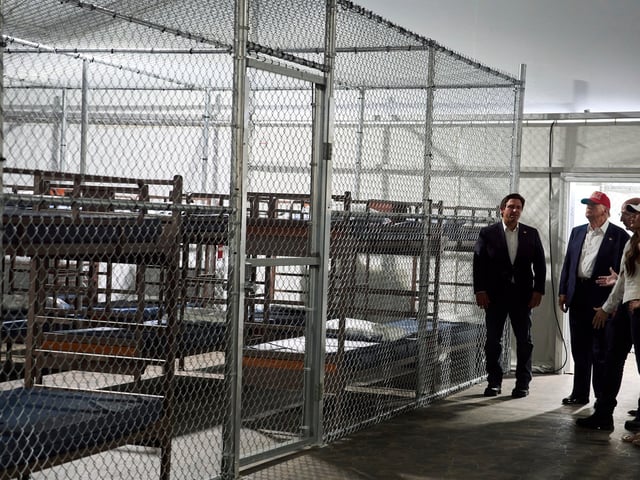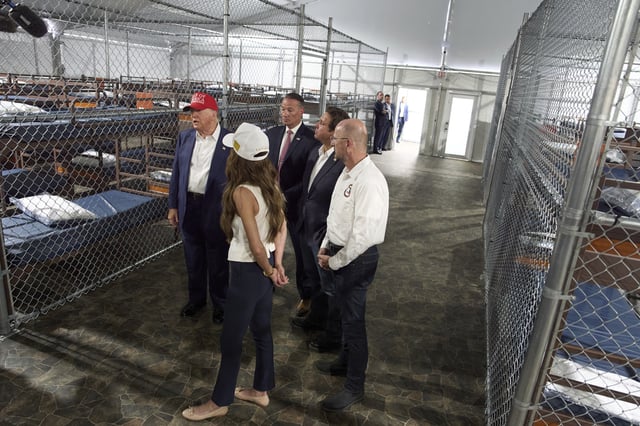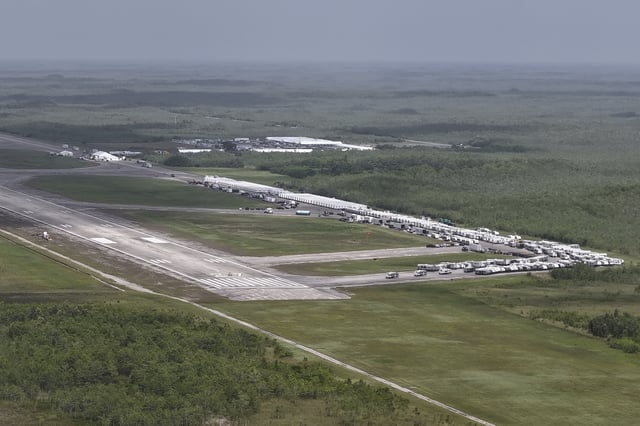Overview
- Florida’s Division of Emergency Management invited state and federal lawmakers to a scheduled visit of the makeshift Everglades camp after earlier denying unannounced oversight requests
- Detainees have described inhumane conditions including lack of bathing water, once-a-day maggot-infested meals, constant lighting and oversized mosquitoes
- Friends of the Everglades and the Center for Biological Diversity filed federal lawsuits citing violations of the National Environmental Policy Act and Endangered Species Act
- The Department of Homeland Security and Florida officials have dismissed abuse allegations as “fake news,” while ICE says the facility is run by the state under its 287(g) program with National Guard support
- Built in under two weeks at Dade-Collier airstrip to bolster President Trump’s daily deportation targets, the camp remains at the center of debates over oversight, detainee welfare and environmental impacts



